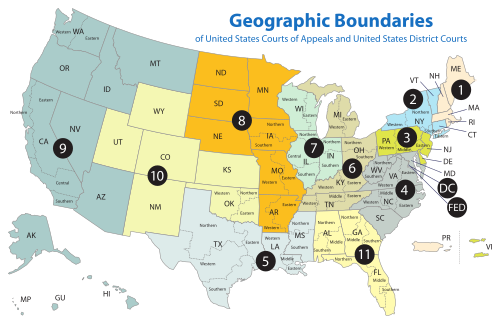External links
- Text of American Mining Congress v. Mine Safety & Health Administration, 995 F.2d 1106 (1993) is available from: CourtListener Google Scholar Justia OpenJurist
- Case Brief for use in an Administrative Law Class [usurped]
| Courts of appeals | |
|---|---|
| District courts |
|
| Specialty courts | |
| Territorial courts | |
| Extinct courts | |
| Note | American Samoa does not have a district court or federal territorial court; federal matters there go to the District of Columbia, Hawaii, or its own Supreme Court. |
